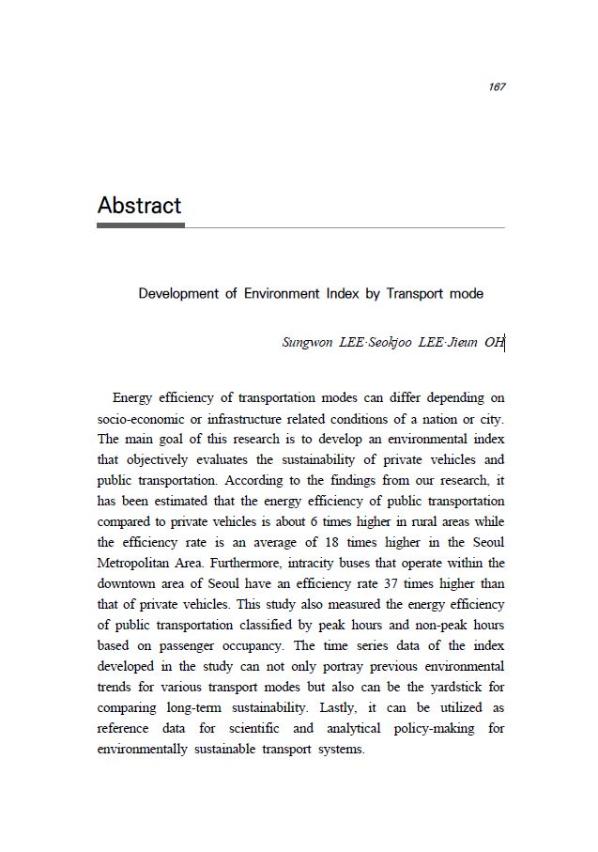Basic Report

RESEARCH
KOTI - Korea Transport institute
Development of Environment Index by Transport mode
- Date
November 30 2016
- Page(s)
page(s)
#Energy efficiency
#environmental index
#public transportation
#policy-making

Energy efficiency of transportation modes can differ depending on socio-economic or infrastructure related conditions of a nation or city.
The main goal of this research is to develop an environmental index that objectively evaluates the sustainability of private vehicles and public transportation. According to the findings from our research, it has been estimated that the energy efficiency of public transportation compared to private vehicles is about 6 times higher in rural areas while the efficiency rate is an average of 18 times higher in the Seoul Metropolitan Area. Furthermore, intracity buses that operate within the downtown area of Seoul have an efficiency rate 37 times higher than that of private vehicles. This study also measured the energy efficiency of public transportation classified by peak hours and non-peak hours based on passenger occupancy. The time series data of the index developed in the study can not only portray previous environmental trends for various transport modes but also can be the yardstick for comparing long-term sustainability. Lastly, it can be utilized as reference data for scientific and analytical policy-making for environmentally sustainable transport systems.
In this research we also estimated mass transit promotion policy’s impacts econometrically using discrete choice modelling. Among the policy measures investigated, we found fuel pricing could be effective for TDM. Research also indicates a potential application in mass transit travel time related policy measures.